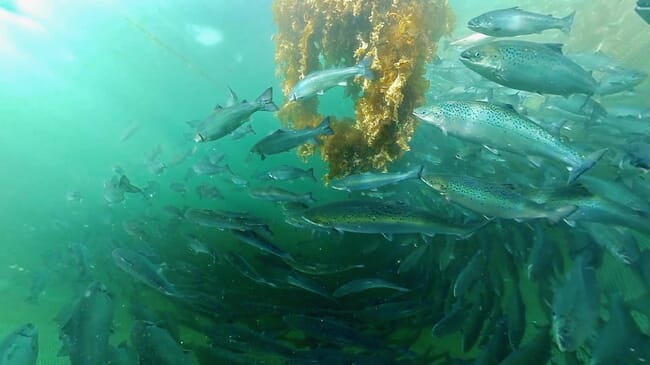
The article, entitled Harmonizing Animal Health and Welfare in Modern Aquaculture: Innovative Practices for a Sustainable Seafood Industry, is authored by Tessa Gonzalez, head of research at Aquatic Life Institute (ALI).
"By prioritising practices that consider the more positive aspects of individual experience and welfare, we not only meet an ethical imperative, but we also unlock advancements in industry standards, public health and environmental sustainability – celebrating innovators who lead the charge toward a more responsible future," said Gonzalez in a press release. “This first edition marks the beginning of our journey, and we invite companies to collaborate with us as we grow this collection together.”
Case studies of progress, include:
- iFarm's BioSort: Precision farming for Atlantic salmon, sea-cage aquaculture that has novel technology to recognise individual animals and their health records.
- F3 Feed Innovation Network: A collaborative network to accelerate the scaling of innovative, substitute aquaculture feed ingredients such as bacterial meals, plant-based proteins, algae, and yeast to replace wild-caught fish globally.
- KelpRing: a negatively buoyant, stucture on which natural kelp grows, providing habitat enrichment for fish.
- Tidal by X, in collaboration with Cognizant at Mowi farms: Underwater camera systems and machine perception tools for gathering intelligence on real-time growth, weight distribution, feeding control and automatic lice counting for salmon.
"At Tidal, we strive to develop machine learning for the next generation of sustainable aquaculture. We feel it is important to leverage our technical expertise to develop tools to support fish health and welfare and reduce feed waste, which has direct implications on environmental impact,” said Kira Smiley, director of sales and marketing at Tidal. “Organisations such as Aquatic Life Institute are critical to this mission in providing the support and guiding influence to help accelerate the adoption of such technologies into aquaculture operations in support of a resilient future for seafood."

